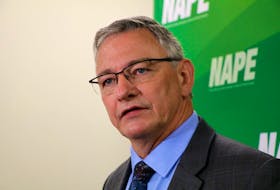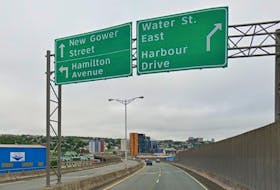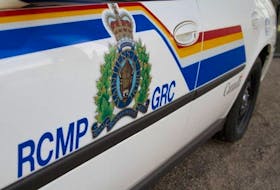Four significant spills in Newfoundland’s offshore since April 2018 — along with a major injury in September that could’ve been fatal — have highlighted the need to review and improve safety, prevention and spill response measures in the offshore oil and gas industry.
That was at the top of the agenda during the Canada-Newfoundland and Labrador Offshore Petroleum Board’s (C-NLOPB) first annual spill prevention and response forum in St. John’s this week.
The event featured over 100 participants from regulatory agencies and government departments, oil and gas industry companies that are — or will soon be — active in the province’s offshore area, along with fishing industry representatives.
“The forum provided an opportunity for regulators, governments and those ‘on the water’ to undertake a collective review of lessons learned from spills in our offshore between April 2018 and August 2019,” said Jeff O’Keefe, C-NLOPB Chief Conservation Officer. “I am pleased that the presentations and discussions reflected participants’ commitment to continuous improvement, with particular emphasis on ensuring operators have all the right people, processes and equipment in place for incident prevention and preparedness.”
In early October, C-NLOPB CEO Scott Tessier wrote to industry operators and new entrants underscoring the need for better industry performance. That correspondence outlined the C-NLOPB’s expectation that industry develop an action plan for basin-wide improvements in environmental and safety performance.
The Canadian Association of Petroleum Producers committed, on behalf of members producing and exploring in the Canada-Newfoundland and Labrador offshore area, to develop and implement such a plan. It will focus on safe, responsible and reliable operations through continuous improvement, a news release noted.
Four principles highlighted at the forum were: health and safety as the top priority; Protection of the environment with an emphasis on protecting sensitive resources; operational decisions should maximize net environmental benefit; and operational response should include a wide range of resources and technology.
O’Keefe also outlined four key priority areas for further work to be undertaken by the industry, from the C-NLOPB’s operational assessment of lessons learned from recent spills. They include: better surveillance and monitoring of subsea assets for producing facilities; review and update operator contingency plans to better meet government agencies’ expectations; improve initial data collection and sharing; and
update a marine hydrocarbon spill response capability report to reflect lessons learned.
C-NLOPB initiatives in place or underway include: strengthening the approach to offshore regulatory audits and inspections to ensure a more thorough, integrated and effective approach that better targets the greatest risks; new regulatory resources for risk assessments, offshore safety and environmental compliance; clearer, more robust adverse weather protocols following from the severe offshore storm of November 2018, which include enhanced mitigating measures to reduce and manage risks leading up to, during, and after severe weather; efforts by the regulator to support governments in regulatory modernization that will enable innovation, including in the areas of spill prevention and response; enhancing the regulator’s Non-Compliance and Enforcement Policy, in part to better communicate the role of the C-NLOPB and its strategies for compliance, prevention and deterrence; and continued C-NLOPB collaboration with other regulators, both in Canada and internationally, through the International Offshore Petroleum Environmental Regulators, the North Sea Offshore Authorities Forum and the International Regulators Forum, which Canada will chair for the next three years.
In September 2019, a Transocean employee on the mobile offshore drilling unit Transocean Barents had been preparing the rig for forecasted weather when the crew member got caught between a steel adapter weighing 1,400 kilograms and a rail during crane operations. The crew member received serious injuries and the incident could have been fatal.
Other incidents still under investigation by the C-NLOPB are: the April 2018 discharge of synthetic-based mud from the Mobile Offshore Drilling Unit Transocean Barents; the November 2018 spill by Husky Energy at the White Rose Field; the July 2019 spill at the Hibernia platform; and the August 2019 spill at the Hibernia platform.
Decisions on enforcement actions will follow completion of these investigations.

![['Hibernia oil platform. —\xa0Telegram photo']](https://saltwire.imgix.net/hibernia-1887649.jpg?cs=srgb&fit=crop&h=568&w=847&dpr=1&auto=format%2Ccompress%2Cenhance)







